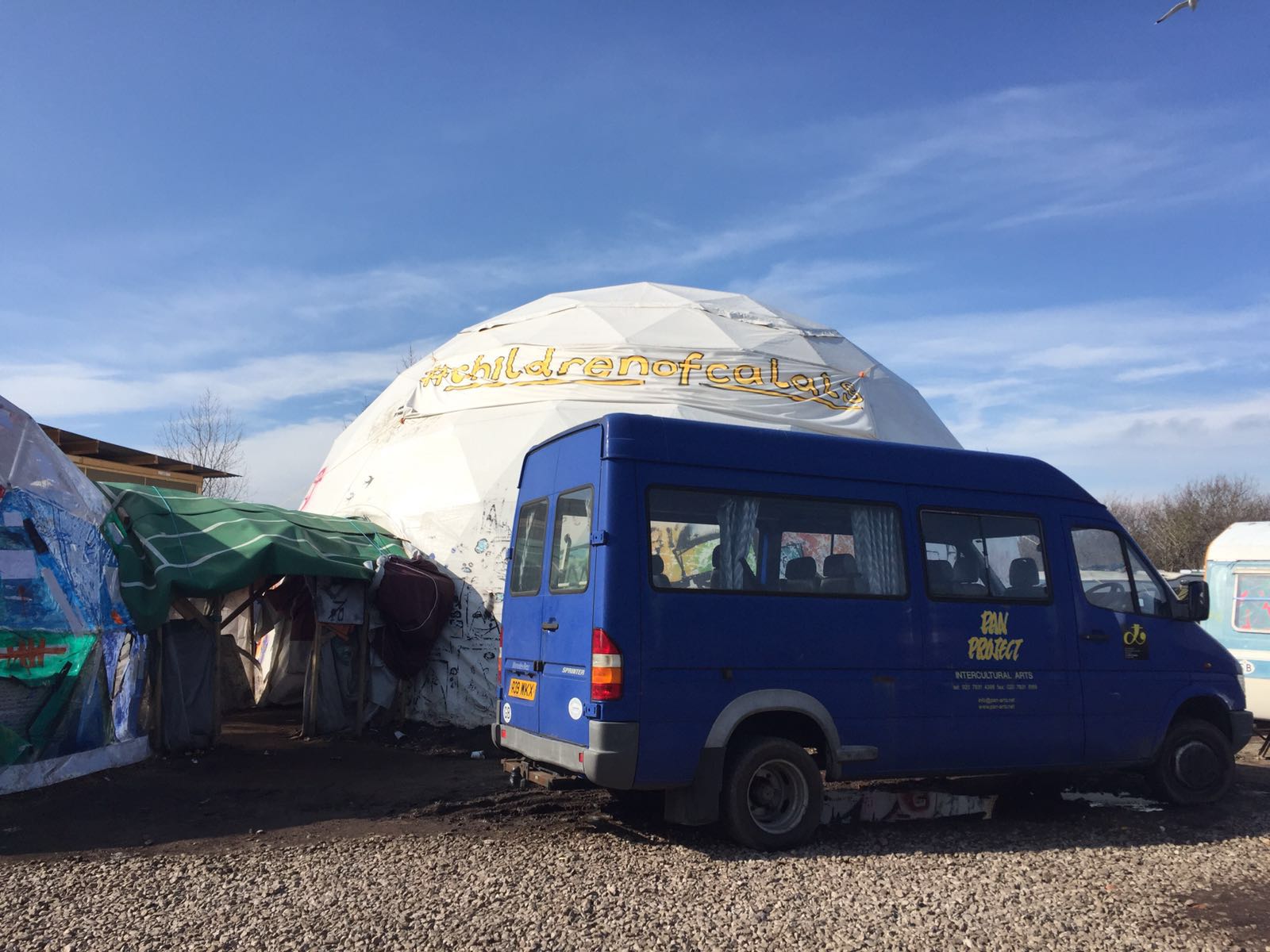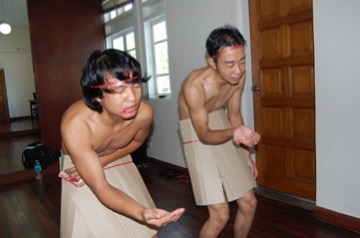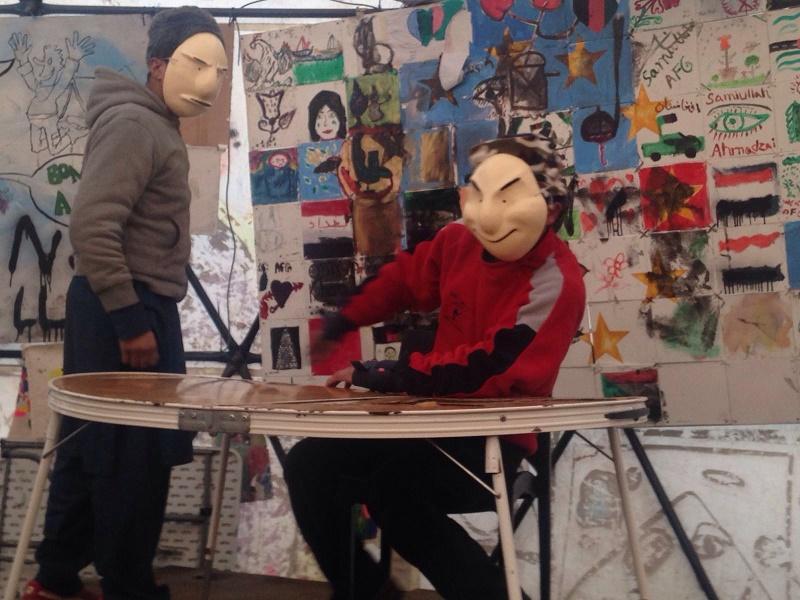The raising of a temporary structure theatre in the middle of the “Jungle” refugee camp in Calais (pictured below) has brought the issue of arts in situations of crisis into sharp focus. This big brave act by two young Brits, opening a creative space to some of the most miserable and traumatised people in Europe, in some of the most squalid conditions and in sight of the English coast, has hit a nerve which we cannot ignore.
People sat up, journalists sat up, activists sat up and realised that this is embarrassingly close to home but that, where governments, international bodies and municipalities have failed to work to improve these peoples’ lives, the artists have filled the gaps left by politicians and given space for humanity, creativity, reflection and joy.
Of course, it was a couple of decades ago that international NGOs stared to realise the fantastic efficacy of theatre, music and other arts both to combat the numbing effects of trauma in crisis situations and to re-ignite creativity, ideas and the ability to re-imagine lives and rebuild hope and community when social infrastructures were shattered. And before that, individual artists and groups had often worked independently to hold on to cultural legacies and make sense of what seemed futile.

Moreover it spawned interest in transferring these methods into other crisis areas, and Pan was in Sri Lanka with the British Council and Save the Children only weeks after the tsunami, training Sri Lankan artists, medics and social workers to use theatre to address the multiple issues of loss and trauma arising from the destruction of whole villages and means of earning. This project reached over 15,000 people in the following years through local facilitators on the ground.
In turn it led to more work in Sri Lanka, on poverty relief, with the UN’s International Labour Organisation and the establishment of six “Shakthi” forum theatre groups in post-conflict zones when that country’s awful civil war came to a bloody end. The arts became a way of identifying the fractures left by conflict and challenged communities to re-imagine themselves, to find solutions, to reject false solutions and to exercise their own voice.
 The destruction wrought by Cyclone Nargis in Myanmar left tens of thousands homeless and with deep personal and family loss. The FCO invited Pan to train local social workers in theatre techniques (pictured left) that communities could engage in to overcome the lethargy of trauma. The United Nations Development programme (UNDP) continued the work and we launched the world’s largest theatre for development programme across the Irawaddy Delta. It led to communities rebuilding schools, bridges and toilets, tackling alcoholism and abuse, overcoming fear and re-engaging with life. Today Pan’s work continues there through “Human Drama” using theatre to tackle trafficking, prejudice and access to justice.
The destruction wrought by Cyclone Nargis in Myanmar left tens of thousands homeless and with deep personal and family loss. The FCO invited Pan to train local social workers in theatre techniques (pictured left) that communities could engage in to overcome the lethargy of trauma. The United Nations Development programme (UNDP) continued the work and we launched the world’s largest theatre for development programme across the Irawaddy Delta. It led to communities rebuilding schools, bridges and toilets, tackling alcoholism and abuse, overcoming fear and re-engaging with life. Today Pan’s work continues there through “Human Drama” using theatre to tackle trafficking, prejudice and access to justice.
These engagements, from Camden to South Sudan, scream “It works”, and slowly agencies are waking up to the life force which the arts re-inject into people and places where life has been torn apart.
And so we found ourselves in freezing temperatures in the beacon of Good Chance Theatre in Calais in early 2016. For our artists this was perhaps the hardest challenge of them all, testing all our skills and experience. We now come to the South Bank in London to reflect on how and why the arts are so effective. We re-enter the Good Chance Theatre with discussions, games and performances to bring this vital role of the arts closer to the minds of the public. Come and join us. You are so welcome.
- Pan Intercultural Arts presents three events at this week's Festival of Love at Southbank Centre. Art in an Humanitarian Crisis hosted by John Martin on 30 July, You Are What You Play on 2 August and Preparing for the Unpredictable at 4pm on 4 August. All events take place in the Good Chance Dome on Festival Terrace. More details here















Add comment